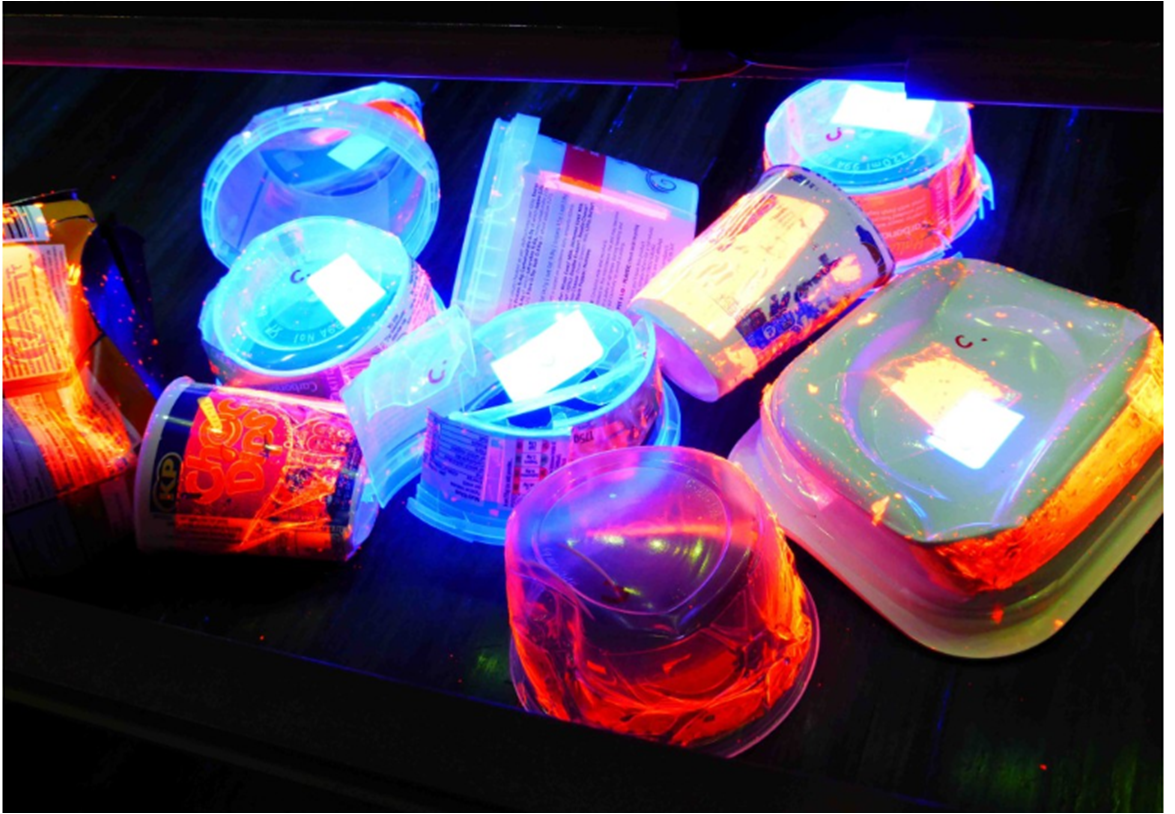
PRISM (The Plastic Packaging Recycling using Intelligent Separation technologies) is a new way of rapidly sorting packaging based on intelligent labels with invisible markers that can be detected and sorted using existing high-speed optical sorting systems used in MRFs with minor modifications. This initiative has secured funding from the UK government innovation agency Innovate UK, as well as the Engineering and Physical Sciences Research Council and commercial partners. The PRISM project will develop new fluorescent materials from novel metal oxides as well as converting reprocessed powders from recycled fluorescent lamps into suitable fluorescent materials. The labels and the markers are removed completely by the recycling process. This technology uses commercial labelling and decoration methods which are coded with high performing luminescent compounds to sort targeted streams including food-contact plastics, bioplastics, chemical packaging, automotive plastics, black plastics and different grades of one plastic. Sorting isaccomplished using modifications to existing NIR sorting machinery.
The new technology can boost recycling plant yields with efficient ways of sorting materials such as PP packaging used for food, HDPE milk bottles and sleeved PET and increase recovery of food grade plastics and open up new markets for recovered plastics. This technology will be compatible with all NIR sorting equipment. It will help brand owners to ensure that packaging reaches the recycling loop and boost UK recycling performance The PRISM project is being led by plastics recycling consultancy Nextek, with the other partners being Brunel University London, Tomra Sorting, CCL Label, Mirage Inks, the Waste & Resources Action Programme, Evolve Polymers (formerly ECOPlastics Recycling), Johnson Matthey and Enlightened Lamp Recycling. ‘This could be the equivalent of an invisible barcode for plastics recycling,’ comments Professor Edward Kosior, managing director of Nextek. ‘It is a significant step forward in the sub-categorisation of plastics which are sorted automatically at high speed.’ The initiative has the potential to provide ‘a massive impetus for new businesses in the recycling sector’, he adds. The fluorescent label technique is designed to be integrated with the current near infrared-based sorting systems used in materials recovery facilities. It would be triggered by an ultraviolet light source that is detected in the visible spectrum - something which is ‘within the capacity of many modern automatic sorting units.
The project partners claim that, if successful, this approach could allow food-grade polymers to be distinguished from non-food-grade, black plastics to be identified and full-length shrink-sleeves to be tagged according to the underlying plastic.






